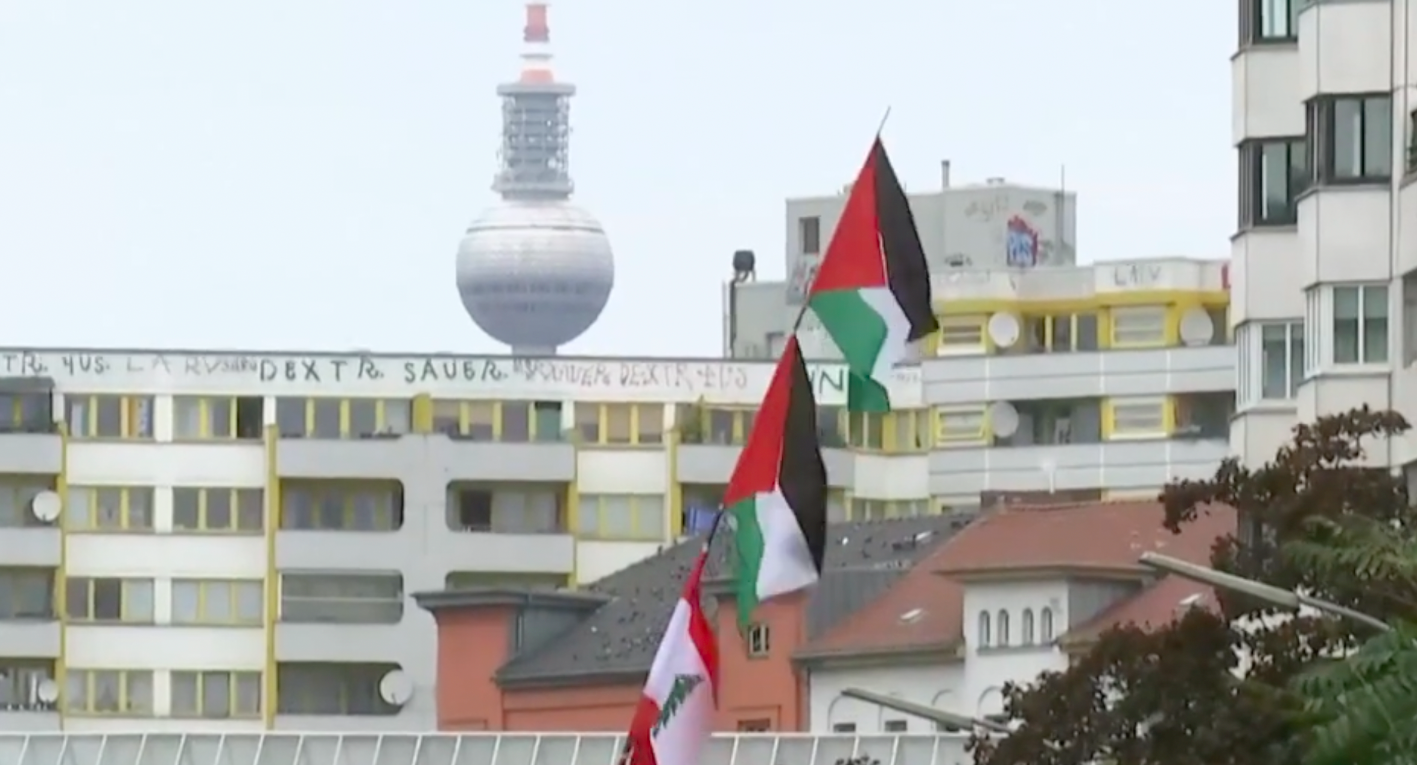Experts say repression is threatening Germany’s general political culture, too.
Experts say repression is threatening Germany’s general political culture, too.
By Yunus Soner, Berlin / Germany
The genocide against the Palestinians continues to spark protests around the world. Some countries repress them in a way that calls into question their own democratic culture.
The Berlin district of Neukölln is home to 160,000 people, a quarter of them Muslims from Türkiye and Arab countries, including Palestine. These days, their children are confronted with a provocative history in school, says Hikmet El- Hammouri, a Palestinian from the Verdi trade union:
“Although it has no legal authority, the district parliament decided that a highly controversial leaflet would be sent to schools in Neukölln. Particularly harsh is that this leaflet, which deals with the Israeli state system, relativizes the expulsion of the Palestinians, the Naqba, at least in part, very strongly as a voluntary resettlement.”
The district is a center of protests against the genocide. Many demonstrations in the city, home to 250,000 Muslims, originate from here. The state reacts, says Dr. Peter Ullrich, sociologist, Technical University of Berlin.
“There is a criminalization of the protests, of the logos, the slogans, the symbols of these protests. And a truly massive one-sidedness directed against pro-Palestinian forces.”
The expert explains that the use of slogans in Arabic, Hebrew, or even Irish on demonstrations is prohibited, on suspicion of being anti-Semitic. Immigrants are required to affirm their support for Israel upon naturalization. A draft law on naturalization opens the possibility to cancel the German citizenship of those who have dual nationality and who provided support to terror organizations. The law does not specify that support, but already any slogan questioning the existence of Israel s evaluated as such.
Another place of repression are universities. Robin Celikates, philosopher, Free University of Berlin: “We have a lot of police on campus, and anytime there’s a student protest, the university unfortunately calls in the police very quickly.”
The professor explains how a conference with Francesca Albanese, the United Nations Special Rapporteur for the Occupied Palestinian Territories, was unable to take place at his university due to a ban imposed by the authorities. When the event was moved to a private location, uniformed and civil police were present.
Not a coincidence, says Dr. Ullrich: “For many years, there has been a working group of various German security agencies and secret services monitoring the boycott-divestment-sanctions movement. In all of these, it can be seen that the Palestinians and their supporters are viewed as a threat to the moral order of the Federal Republic of Germany.”
The repression is not limited to Palestinians, the experts emphasize.
“We wrote an open letter against the repression of pro-Palestinian demonstrations and also in defense of the fundamental rights at stake. It couldn’t even be published in German newspapers”, says Celikates.
Dr. Katja Hermann, Rosa Luxemburg Foundation, Advisor for the West Asia area, is worried about Germany’s political culture.
“We have a great fear that this is the beginning—not the beginning, but one of the beginnings—of an authoritarian restructuring in Germany, as it affects almost all political parties and movements.”
Despite all the repression, hundreds of people celebrated the day of al Quds in Berlin, as Netanyahu’s genocidal policies affect political systems in the West.
















Leave a Reply